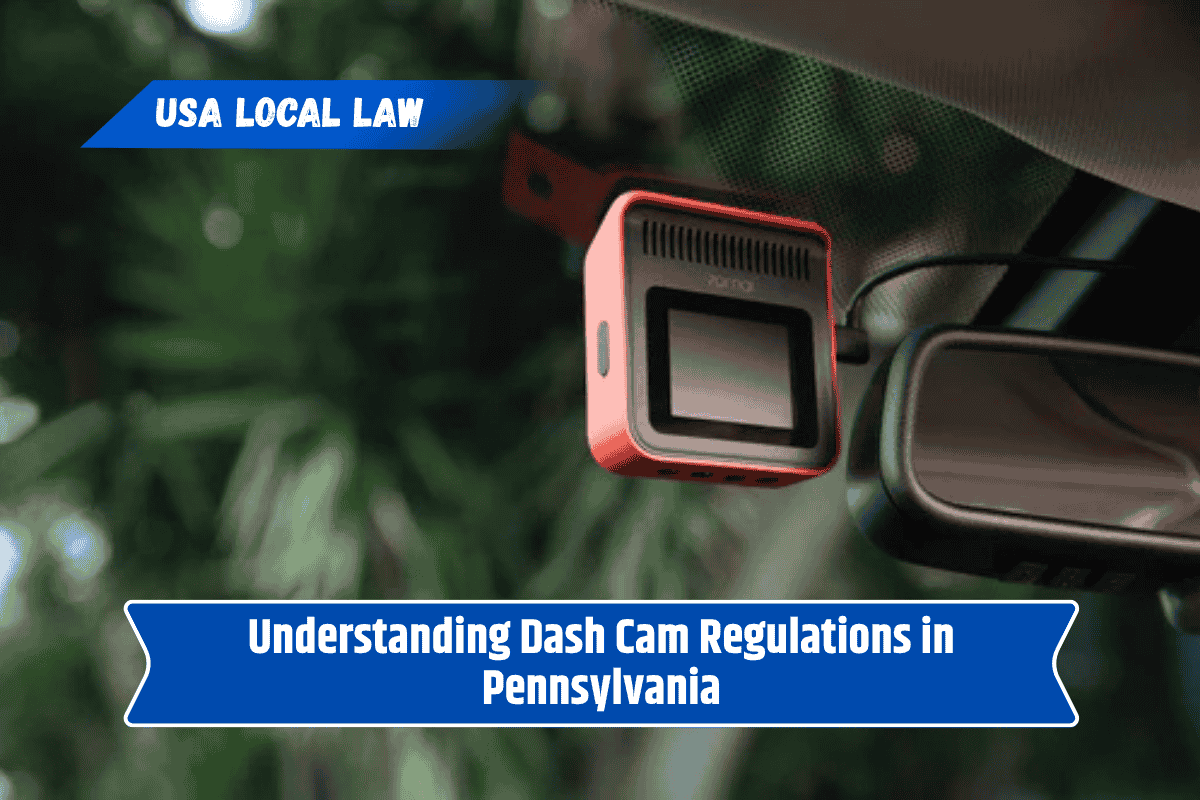Dash cameras (or dash cams) have become an essential tool for many drivers, offering a sense of security and providing crucial evidence in case of accidents, disputes, or traffic violations.
In Pennsylvania, like in many other states, dash cams are not just useful tools—they’re also subject to certain legal regulations. Understanding these rules is important for ensuring you stay within the law while using a dash cam in your vehicle.
Are Dash Cams Legal in Pennsylvania?
Yes, dash cams are legal to use in Pennsylvania. There is no state law specifically banning the use of dash cameras in vehicles. Many drivers use them to record their driving experiences, accidents, or interactions with law enforcement.
These devices can serve as valuable evidence in the event of a traffic dispute or an accident, and can even be used for insurance claims.
However, while dash cams themselves are legal, there are some important considerations to keep in mind regarding where and how they are mounted, and how the footage is used.
Mounting Dash Cams
In Pennsylvania, there are guidelines about where you can place a dash cam in your car. The key concern is that the camera should not obstruct the driver’s view of the road.
The Pennsylvania Vehicle Code requires that all devices mounted on the windshield (including dash cams) must not interfere with the driver’s ability to see clearly.
Dash cams should be installed in a way that does not block the driver’s line of sight, especially when it comes to the area directly in front of the driver. For example, you should avoid mounting your dash cam in the center of the windshield where it could obstruct your view of the road.
It’s best to place it in the upper corners of the windshield, where it won’t block important areas of visibility like the rearview mirror or the driver’s direct field of view.
Audio Recording and Privacy Laws
In addition to video, many dash cams also record audio. However, Pennsylvania has strict laws about audio recording, especially when it comes to conversations. Pennsylvania is a “two-party consent” state, which means that all parties involved in a conversation must consent to being recorded. This applies to dash cams as well.
If your dash cam records audio inside the vehicle, be cautious about recording conversations without the consent of all parties involved. If you’re recording audio in Pennsylvania, especially when interacting with other individuals, it’s a good idea to ensure that everyone is aware that the conversation is being recorded to avoid potential legal issues. This is particularly important during traffic stops with law enforcement.
While recording audio in public spaces (like a public road) is generally legal if the conversation isn’t private, it’s still crucial to be mindful of any private conversations that may occur in your vehicle.
Dash Cam Footage as Evidence
Dash cam footage can serve as important evidence in Pennsylvania, especially if you’re involved in a car accident or dispute. The footage can be used in court or submitted to insurance companies to support claims. However, there are rules governing how this footage is shared.
If you plan to use your dash cam footage as evidence, it’s important to ensure that it’s collected in a lawful manner. For example, if you record a traffic stop, the footage can be used as evidence, but it’s essential to understand that it should not be edited in ways that could mislead the facts.
What About Recording Police Interactions?
In Pennsylvania, as in other states, it is legal to record law enforcement officers in public spaces, including during traffic stops, as long as you don’t interfere with their duties.
However, it’s important to be mindful and respectful during these interactions. You should not obstruct the officer’s actions or get too close to them, as this could result in legal trouble.
If your dash cam records police interactions, the footage can be used as evidence in court, provided the recording was made without violating any laws. It’s also advisable to inform officers that you are recording the interaction, especially if audio is being captured.
Using a dash cam in Pennsylvania is legal, but it comes with certain responsibilities. Make sure your camera is mounted in a location that doesn’t obstruct your view of the road, be mindful of the state’s privacy laws regarding audio recordings, and use the footage lawfully, especially when it comes to recording interactions with law enforcement.
If used correctly, dash cams can provide valuable protection and evidence in case of accidents or disputes, while still staying within the legal boundaries of Pennsylvania law.
